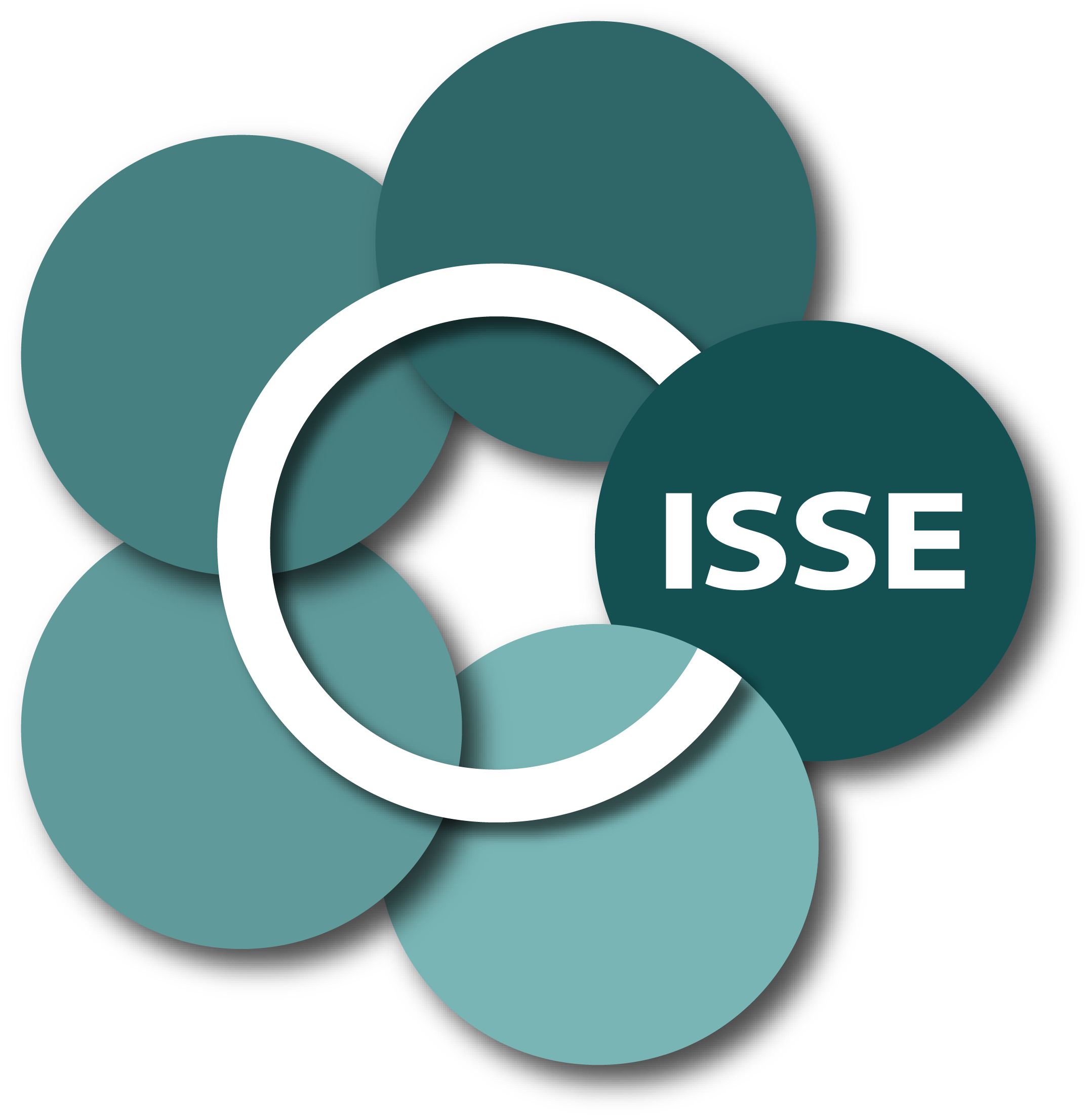Keynote & Invited Speakers
ISSE 2025 Keynote and Invited Speakers
In alphabetical order
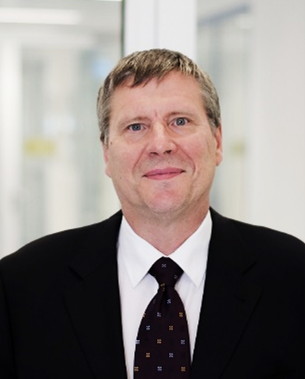
Keynote Speaker / Distinguished Lecturer: Rolf Aschenbrenner
Job position: Deputy Director
Company: Fraunhofer IZM, Berlin
E-mail: rolf.aschenbrenner@izm.frauhofer.de
Title of the presentation:
The APECS pilot line is powering the evolution of chiplet technologies
Short CV:
Rolf Aschenbrenner received the B.S. degree in mechanical engineering from the University for Applied Science, Gießen, Germany in 1986 and the M.S. degree in physics from The University of Gießen, Germany, in 1991. Since March 1994 he has been employed at the Fraunhofer Institute for Reliability and Microintegration (IZM), where he is presently the deputy director and head of the Business Development Team.
Abstract:
The pilot line for »Advanced Packaging and Heterogeneous Integration for Electronic Components and Systems« (or APECS in brief) is a key part of the EU Chips Act, as it will propel innovation in chiplet technology and enrich the semiconductor research and production capacities in Europe. The institutes cooperating in the Research Fab Microelectronics Germany (FMD) are working closely with other European partners to complete the APECS line and contribute substantially to making Europe more technologically resilient and competitive in the global semiconductor industry. The pilot line will give large industry players and SMEs or smaller start-ups easier access to cutting-edge technology and feed into more reliable and resilient semiconductor value chains.
The presentation will discuss the role of Fraunhofer IZM in the APECS pilot line with its expertise for the hardware integration of chiplet systems. With its access to individual chiplet components, the institute can cover the entire process flow needed to create fully functioning systems. Its researchers are working on modern 300mm interposer technologies, high-density substrates, advanced assembly technologies, and the necessary processes for the advanced heterointegration of highly integrated systems. Fraunhofer IZM is establishing itself as a key partner for system-level heterointegration in Europe with several focus innovations.
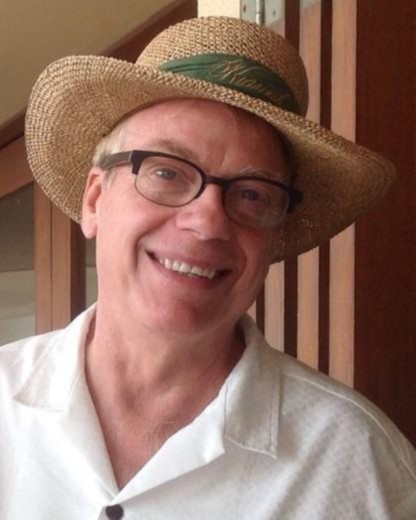
Keynote Speaker / Distinguished Lecturer: Charles E. Bauer, Ph.D.
Job position: Senior Managing Director
Company: TechLead Corporation
E-mail: chuck.bauer@TechLeadCorp.com
Title of the presentation:
Chiplets 1960-2030; Where We’ve Been & Where We’re Going!
Short CV:
Charles E. Bauer, Ph.D. serves as Senior Managing Director of TechLead Corporation, a technology management company specializing in the electronics packaging, interconnection and assembly industry, as well as Director of the University of Portland’s Global Executive Leadership MBA program. Dr. Bauer focuses in the areas of strategic technology planning, market analysis and business development, particularly in the international arena. Recent foci include an emphasis on medical device applications, technological innovation and education.
With more than 40 years’ experience spanning the range from complex interconnection technologies (printed circuit boards, hybrid and IC metallization and fabrication) through complex packaging (multichip modules, system in package, 3D packaging) and assembly (die attach, wire bonding, flip chip, hybrid bonding, nano assembly, etc.) as well as nano-technology applications in electronics manufacturing, his publications exceed 250 papers, articles and columns.
A Senior Member of IEEE, he remains active in the SMTA, JIEP, ASM and IMAPS Europe as well. Dr. Bauer served on the Boards of both the SMTA and IMAPS and as President of IMAPS in 2001-2002. Awards received include Tektronix Technical Innovation Award, Fellow of IMAPS, the International Leadership Award from the SMTA, Jesuit High School Hall of Fame, University of Portland Significant 75 Alumni and SMTA 25th Anniversary Luminary as founder of the Pan Pacific Microelectronics Symposium. Most recently Dr. Bauer received the Founder’s Award from the SMTA.
Abstract:
A review of the history of chiplets as an architectural and technical solution in advanced electronics design and manufacture sheds light on future directions and challenges. By reviewing the bumps in the road thus far, we anticipate the hurdles yet to overcome. The presentation explores several significant technologies as well as business strategies crucial to successful deployment of modern chiplet opportunities. Specific areas of interest include hybrid bonding, assembly hierarchy, substrate and chip supply chain, standardization and system level integration.
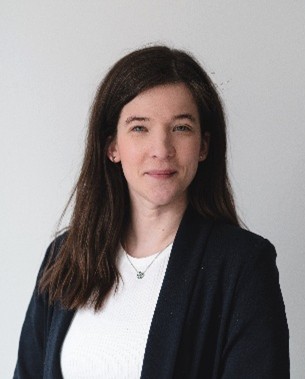
Invited Speaker / Distinguished Lecturer: Orsolya Kéri, PhD
Job position: Technology & Market Analyst Team Leader
Company: Semilab Zrt
E-mail: orsolya.keri@semilab.hu
Title of the presentation:
Metrology and Inspection Method Advancements Driven by the Advanced Packaging Market
Short CV:
Orsolya Kéri received her B.Sc degree in chemical engineering from the Budapest University of Technology and Economics in 2014 and her M.Sc degree in 2016 from the same university. She did her PhD studies from 2016 to 2019, focusing on the field of analytical chemistry, material science, surface coatings, nanocomposites and photocatalysis. She started working at Semilab in 2020, and she is now the leader of the Technology & Market Analyst Team.
Abstract:
The advanced packaging market is driving significant technological advancements with a global impact, due to its high demand and the continuous emergence of new technologies. These developments are not only influencing the packaging industry but also driving progress in connected markets, such as metrology and inspection. To keep pace with these innovations, the market requires new solutions.
Providers must respond quickly to address the new challenges that arise with the of ever-smaller component and pitch sizes and densely stacked, increasingly complex structures. Issues like voids just a few microns in size are becoming more prevalent, but conventional techniques like scanning acoustic microscopy lack the necessary capabilities to detect them. As a result, alternative methods are needed to address these challenges effectively. Additionally, the high bow and warp in these structures contribute to stress, while the pick-and-place packaging process often leads to chipping and cracking.
The vast number of wafers requiring inspection adds to the complexity, especially since 100% inspection is often essential. This is even more critical as many of these technologies are still being refined, making advanced and reliable inspection solutions a necessity.
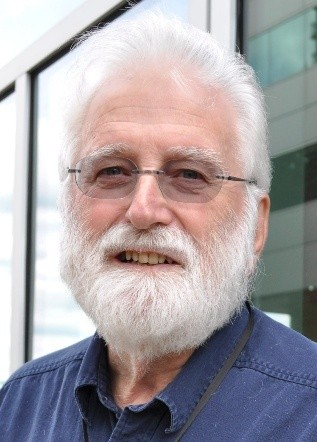
Keynote Speaker / Distinguished Lecturer: James Morris
Job position: Emeritus Professor
Company: Portland State University
E-mail: j.e.morris@ieee.org
Title of the presentation:
Applications of Discontinuous Metal Thin Films to Electronics Packaging
Short CV:
Jim is a retired Professor with over 60 years of teaching experience, 8 published books, 33 book chapters, over 170 refereed research publications ranging from tunnel diodes to discontinuous metal and ITO thin films to automotive engine control to switched mode power supplies to electrically conductive adhesives to engineering education, and one patent. He is an IEEE Life Fellow and a Past-President of the IEEE Nanotechnology Council.
Abstract:
When a metal is deposited on insulating substrate, e.g., Au on glass in vacuo it initially grows as discrete nanoscale metal islands separated by nm gaps. Such films conduct charge by interisland tunnelling with an electrostatic activation energy. The presentation will briefly cover the widely accepted conduction model and a revised contact injection version which explains most of the former’s problems as an introduction. There is a large body of literature on discontinuous metal thin film (DMTF) applications as strain gauges and hydrogen sensors which both have potential applications as reliability sensors in electronics packaging, but the presentation will cover a much wider range of less developed technologies, especially one suggested by a recent analysis of AC data. Early interest in these DMTFs was frustrated by a lack of reproducibility in their fabrication and subsequent drift in properties and the presentation will briefly survey some suggestions to solve both the reproducibility and reliability problems. It will conclude with the description of a fabrication technique which holds the promise of manufacturability and commercial applications.
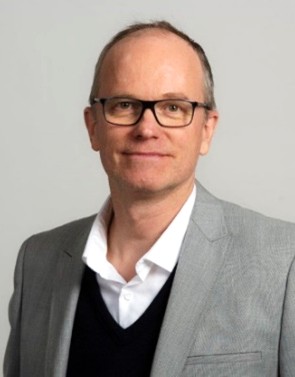
Keynote Speaker / Distinguished Lecturer: Xavier Pascal
Job position: Full Professor
Company: Grenoble Alps University
E-mail: pascal.xavier@univ-grenoble-alpes.fr
Title of the presentation:
Sustainable electronics: what kind of sustainability?
Short CV:
Pascal XAVIER received the Ph. D. degree in Physics from the Grenoble University, France, in 1994. He joined the Centre for Radiofrequencies, Optics and Microelectronics of the Alps (CROMA) of Grenoble in 2003 where he is currently coordinator of a Horizon Europe EIC Pathfinder Challenges project on responsible electronics. His research interests include design, realization and test of sustainable microwave devices and sensors for environmental applications, bioelectromagnetism and characterization of complex materials. He is Full Professor in the Department of Electrical Engineering, Technology University Institute of Grenoble (UGA), involved in teaching of Electronics and Physics.
Abstract:
This presentation will highlight the latest approaches in electronics to tackle the global environmental challenges. The lecture will first cover the current and foreseen global environmental footprint of electronics, then the general methods that are used to reduce the environmental impact of electronics, but also some implementation examples of these methods, exploring several domains such as Printed Circuit Boards, Microelectronics, Power Electronics or Radio-Frequency electronics. The maturity of the presented emerging technologies will also be discussed. In the background, the subject of defining sustainability will be the common thread running through the presentation.
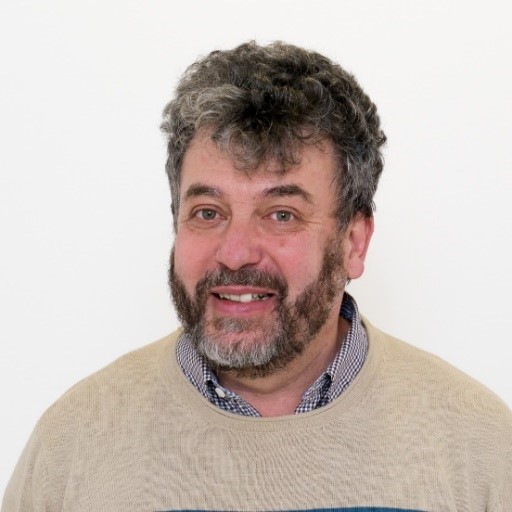
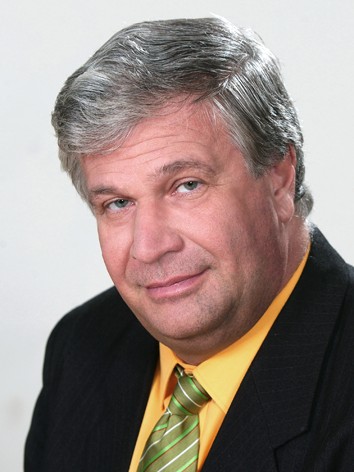
Keynote Speaker / Distinguished Lecturer: András Poppe
Job position: Professor
University: Department of Electron Devices, Faculty of Eelectronic Engineering and Informatics, Budapest University of Technology and Economics
E-mail: poppe.andras@vik.bme.hu
Keynote Speaker / Distinguished Lecturer: Gábor Harsányi
Job position: Emeritus Professor
University: Department of Electronics Technology, Faculty of Eelectronic Engineering and Informatics, Budapest University of Technology and Economics
E-mail: harsanyi.gabor@vik.bme.hu
Title of the presentation:
Long Term Reliability of Light Emitting Diodes
Short CV:
András Poppe is a full time professor at the Department of Electron Devices, Budapest University of Technology and Economics. He was been heading the department since 2013. His main research topics are: thermal transient testing of semiconductor device packages, thermal modelling and simulation of electronic systems, multi-domain testing, modelling and simulation of LED packages and LED-based luminaires. He was BME’s PI in the recently completed AI-TWILIGHT H2020 ECSEL project where his research team successfully completed a Spice-like multi-domain LED model with stress condition and elapsed operating time dependent aging model. For his research in multi-domain LED modelling he received the Harvey Rosten Award for Excellence in 2013. Shared with his PhD students he received the Harvey Rosten Award for Excellence in 2018 for their work on LED aging modelling.
Gábor Harsányi is Emeritus Professor at the Department of Electronics Technology, Budapest University of Technology and Economics. He was the head of department from 2003 to 2021. His main research topics are: reliability physics of high density electronic interconnection systems, sensors in biomedical applications. He published two books, more than 300 papers and has more than 2500 citations. He is Lifetime Member of IMAPS and Senior Member of IEEE Electronics Packaging Society.
Abstract:
LEDs (Light-Emitting Diodes) became widespread beyond indoor and outdoor general lighting including decorative lighting, automotive lighting and horticulture lighting as well. These application areas often mean harsh environments, for example, regarding the humidity content of the surrounding air: besides outdoor and automotive illumination, even the household use cases (kitchen, bathroom, cellar) may represent extreme temperature and humidity variations (often reaching relative humidity levels close to 100%) for these devices; thus, their reliability behavior in such circumstances should be better understood. Thermally activated processes were studied in several previous publications, but less information is available regarding high-humidity environmental tests. Moisture and temperature ageing tests with appropriate environmental parameter settings were performed as accelerated lifetime tests to investigate not only the effect of temperature but also that of humidity on the ageing and reliability of LED packages containing RGB (red-green-blue) chips and phosphor-converted white (pcW) LEDs. The ageing was followed not only through monitoring optical/electrical/spectral parameter changes but also with material analysis. Moisture material interaction models were proposed and set up.
Besides giving insight into the root causes and modelling of RH accelerated aging processes, details on multi-domain modelling of LEDs extended with mission profile (forward current and operating temperature) and elapsed operating time dependence will also be discussed.
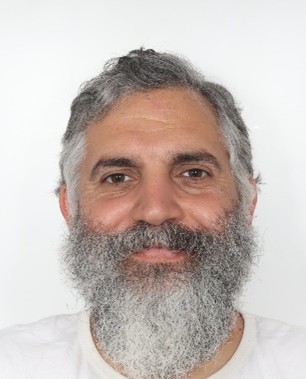
Keynote Speaker / Distinguished Lecturer: David J. Cuartielles Ruiz, PhD
Job position: Head of Research / Head of IxD Masters, FSL Lab
Company: Arduino / Malmo University
E-mail: d.cuartielles@arduino.cc
Title of the presentation:
Open-Source Educational Tools, past, present, future
Short CV:
David Cuartielles is a Telecommunications Engineer and Doctor in Design. He has devoted the last 25 years to experimenting with different educational models from his position as educator at Malmö University. His projects have reached millions of students at universities and schools all over the world. Currently leads the Interaction Design Masters programme centred in the creation of interactive artifacts and platforms. David is co-founder of Arduino and has been involve in hardware, software, and documentation design. At the time of writing, he leads the unit dedicated to pursuing relevant research projects. David has been awarded with the European Open-Source Award in Skills and Education, the Ashoka Foundation Fellowship, the STINT Foundation Fellowship, the SER Engineering Prize, and the Sant Carles Medal of the Arts among others.
Abstract:
This conference keynote will use Arduino as an example of how open source educational tools have change over the course of the last 20 years. From the physical tools (hardware) to the use of clouds. The talk will cite examples of projects developed by students from different educational levels, show educational packages, and compare pedagogical models. The end of the talk will open up for the yet-unwritten possibilities of the new industrial technologies arriving to the educational market making use of different open-source components: from machine learning with computer vision to industrial PLCs.
